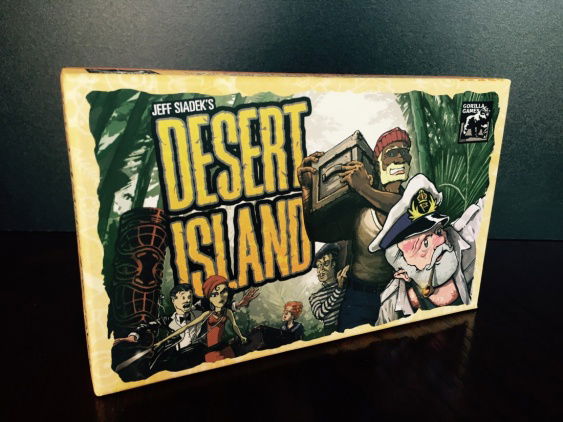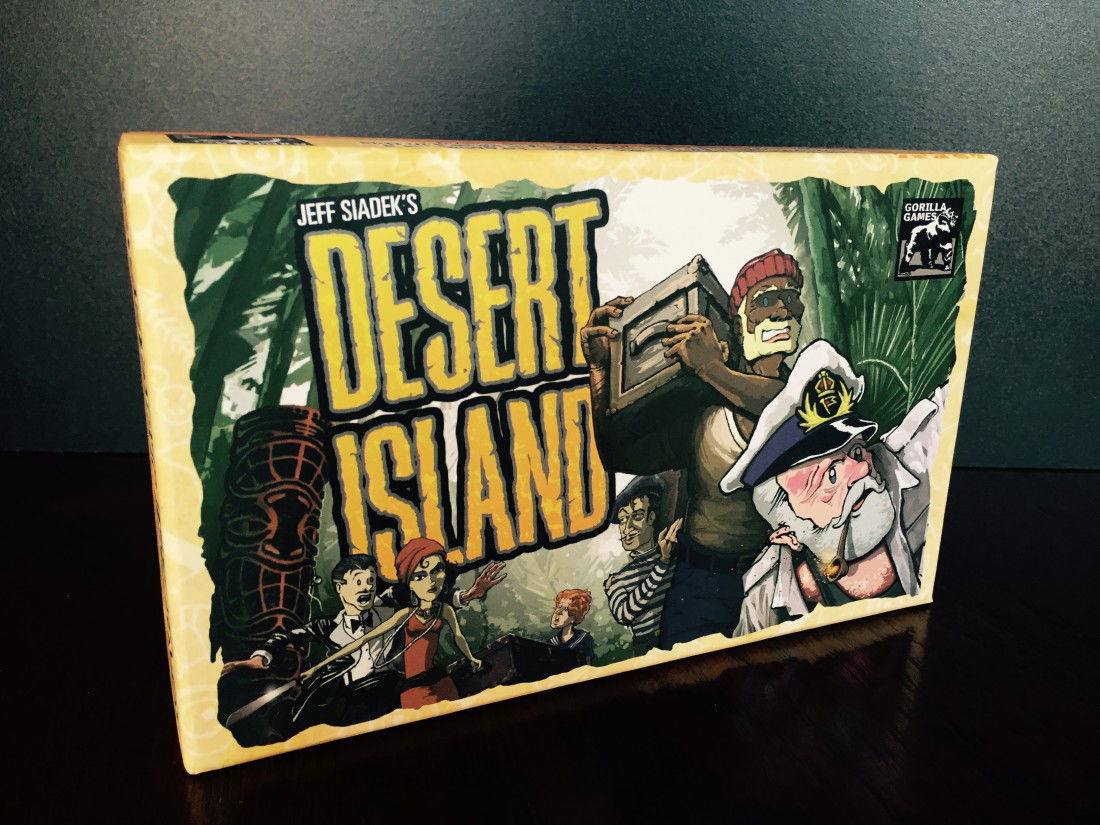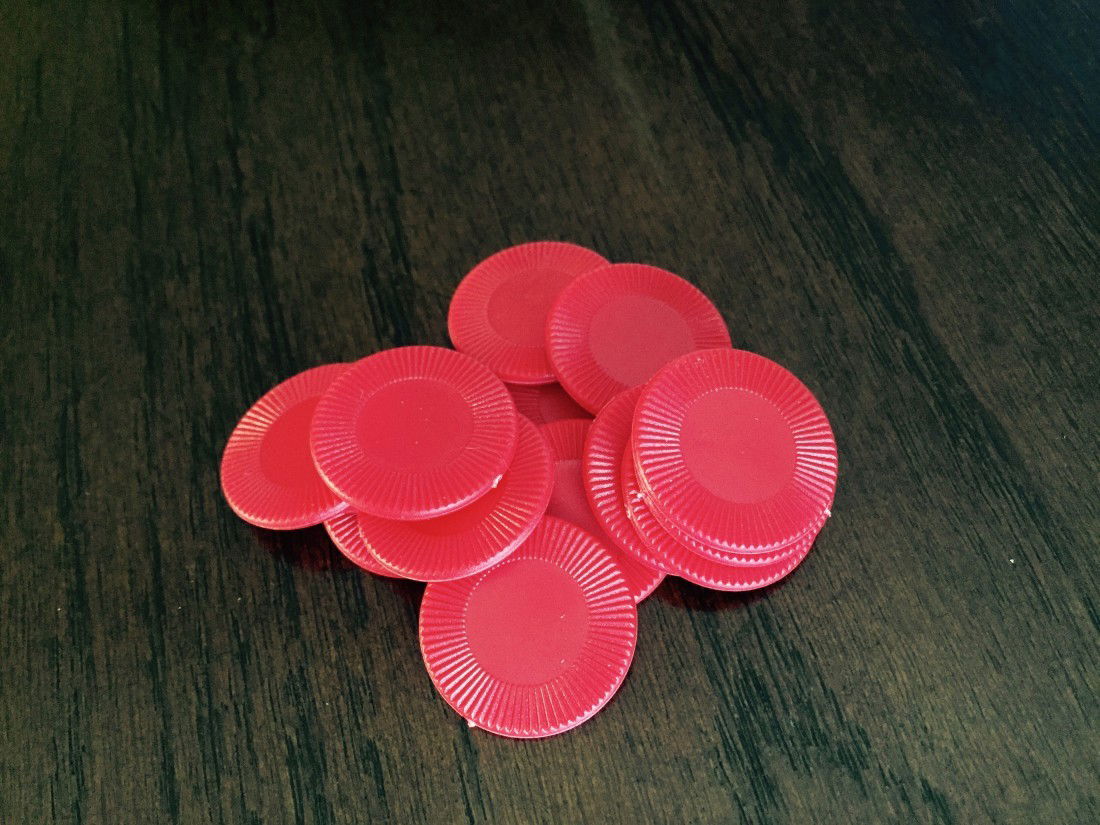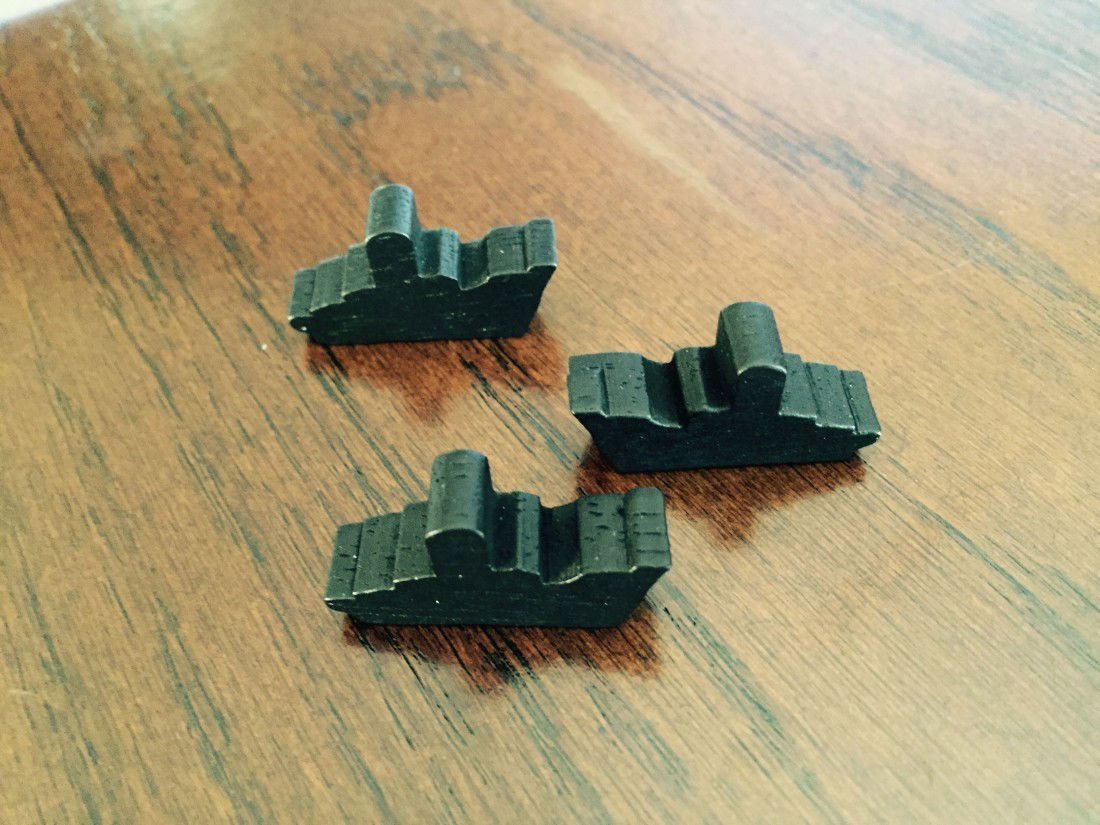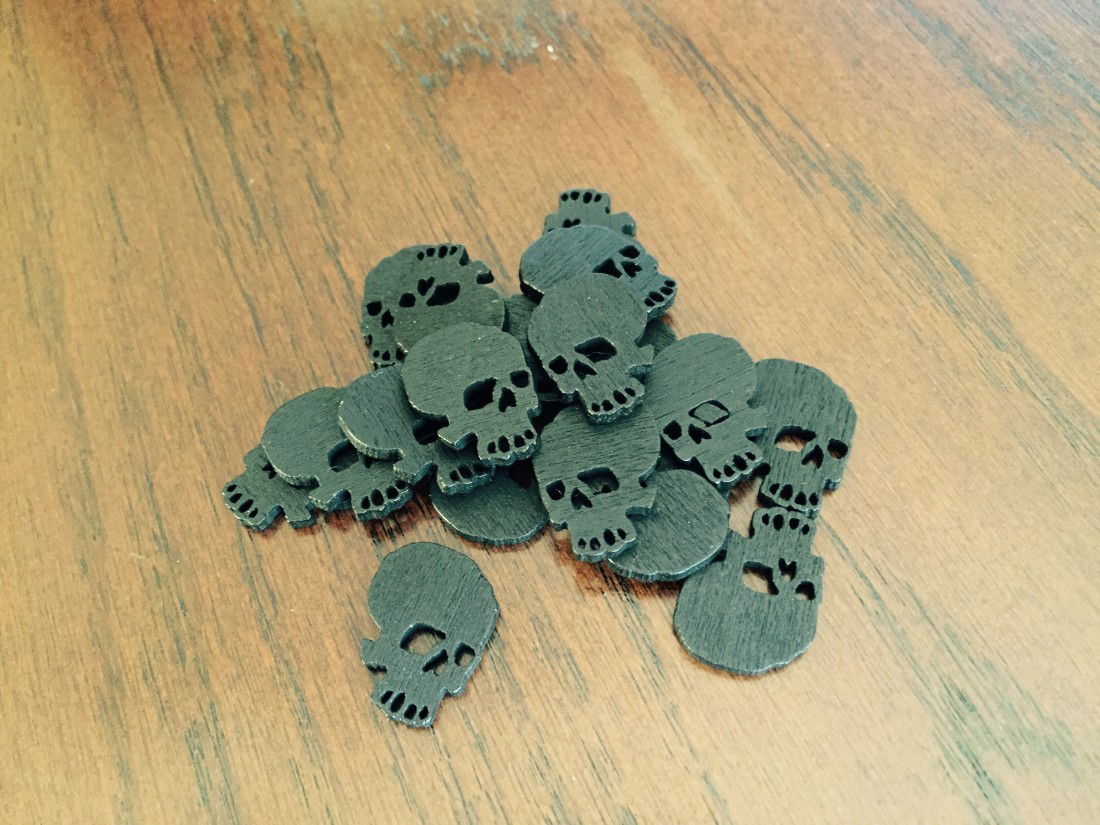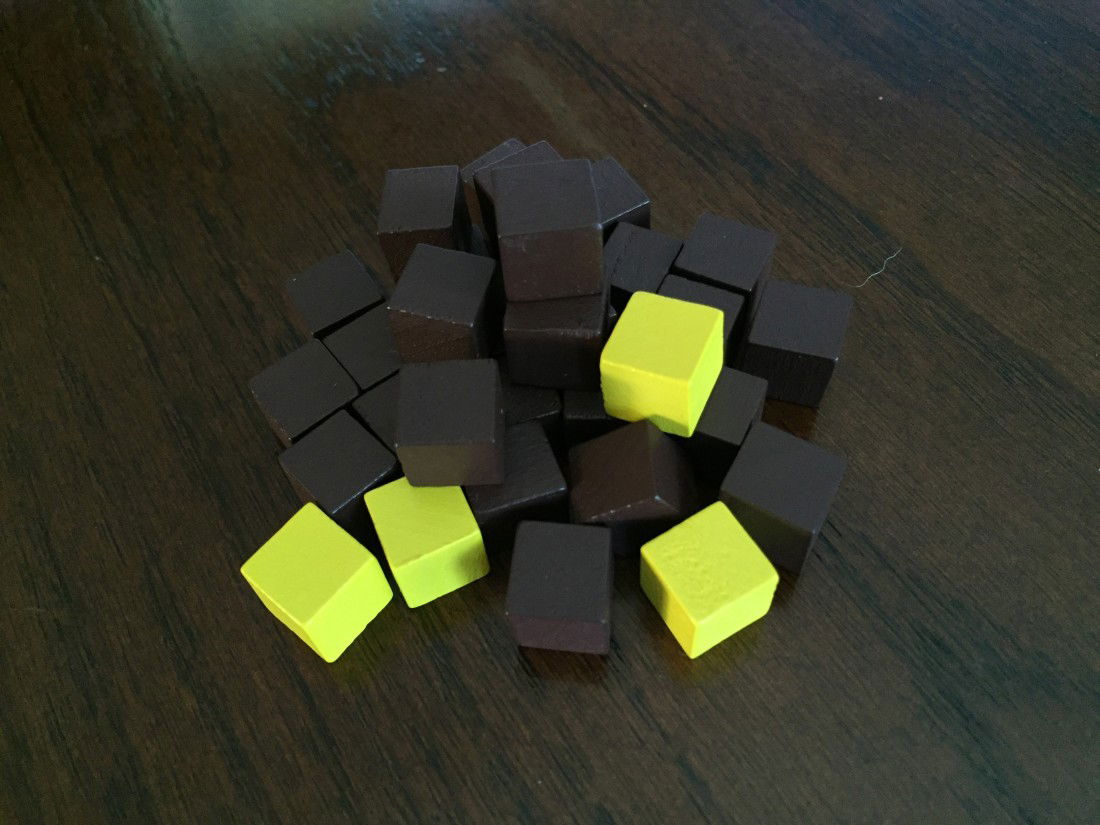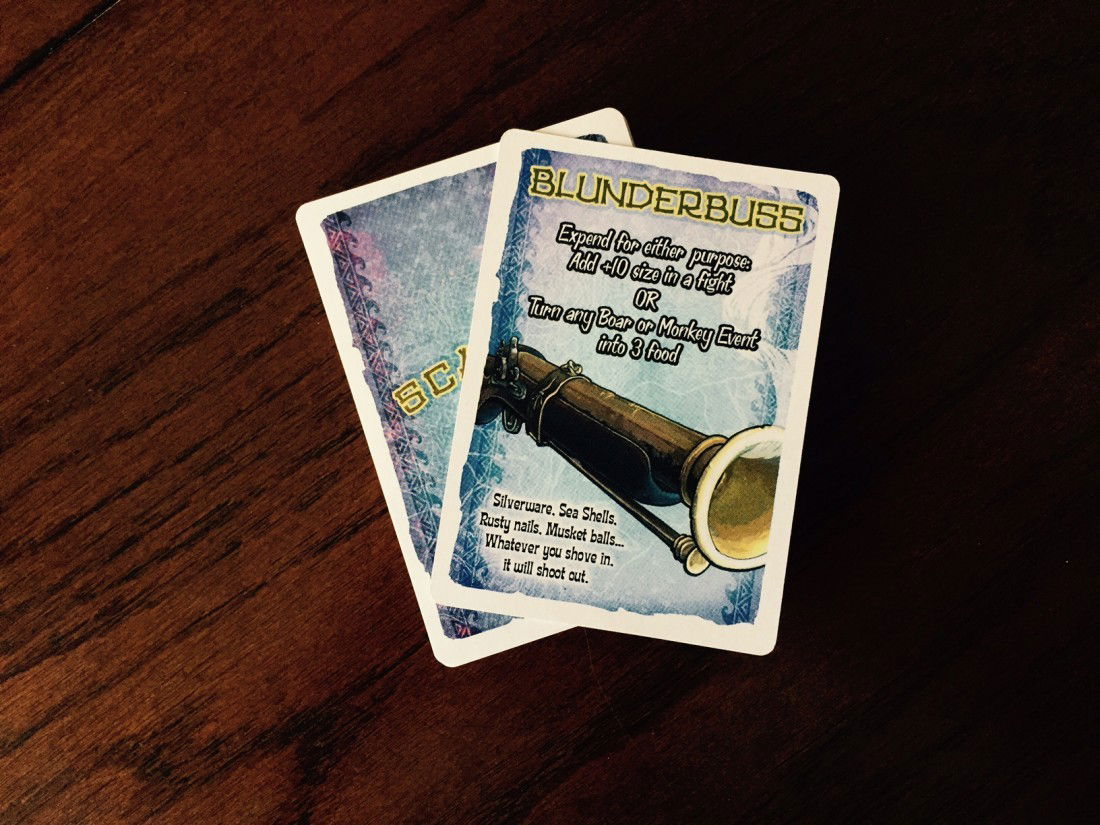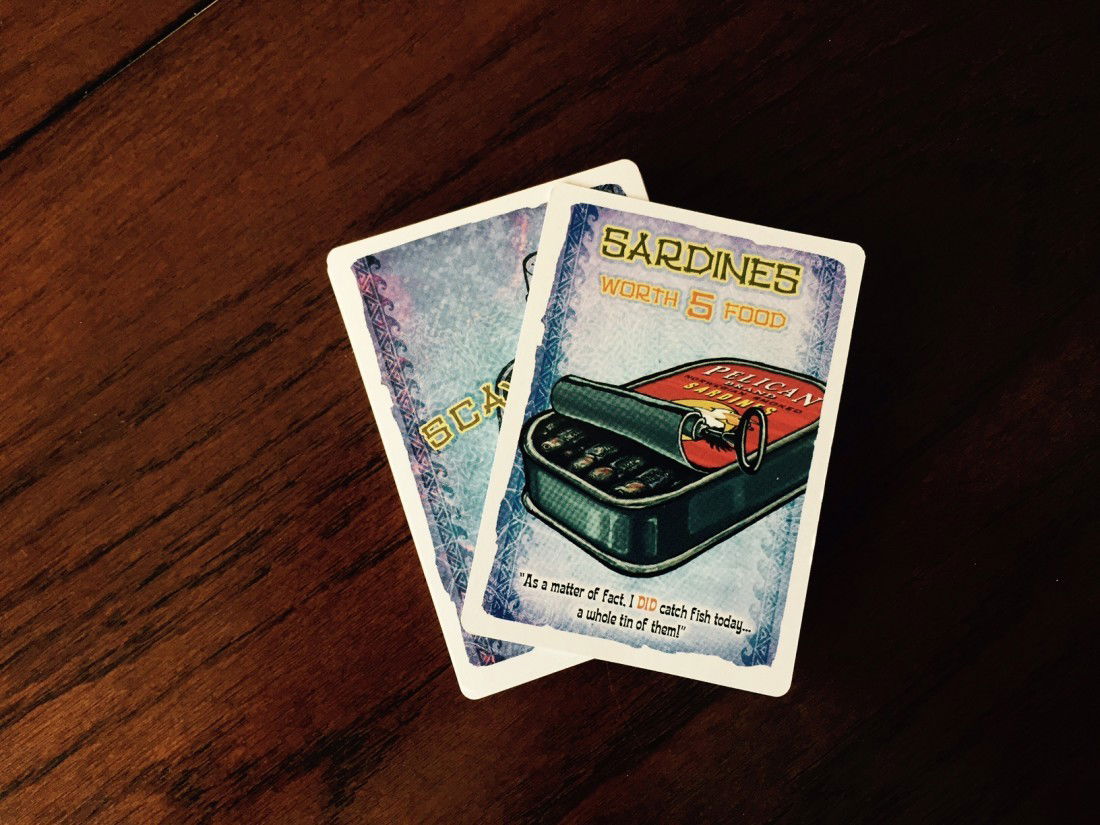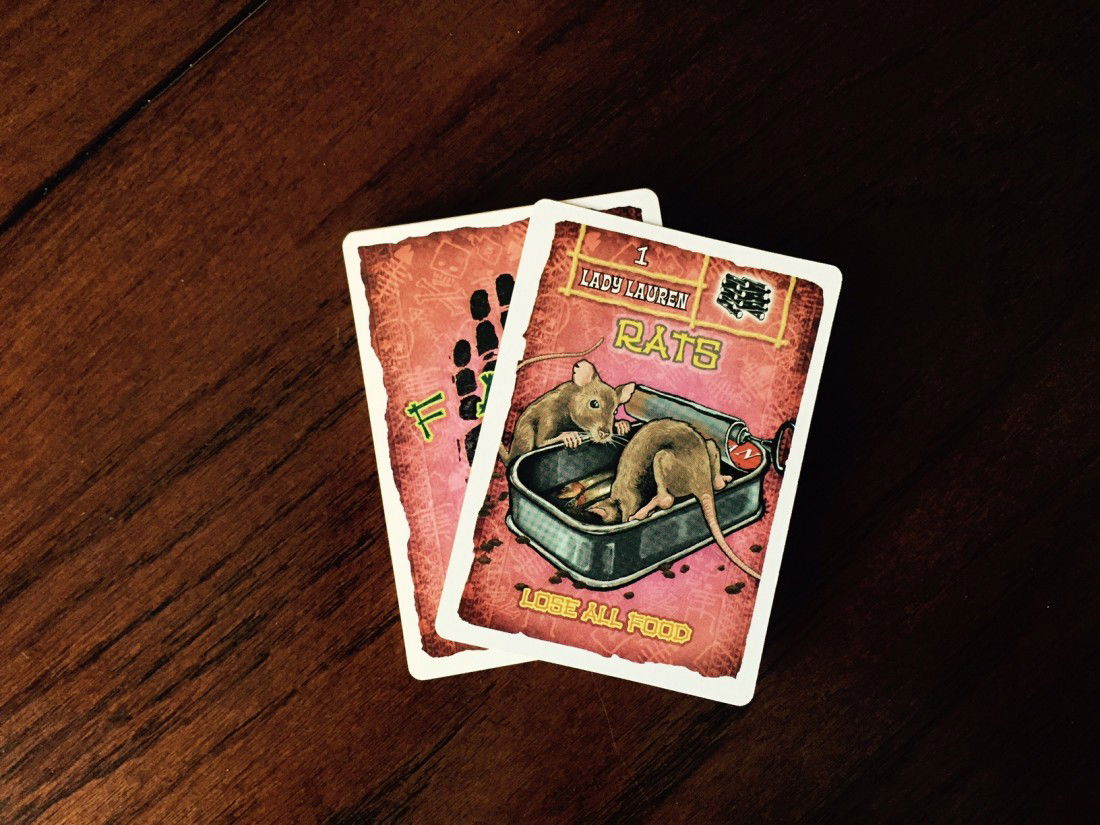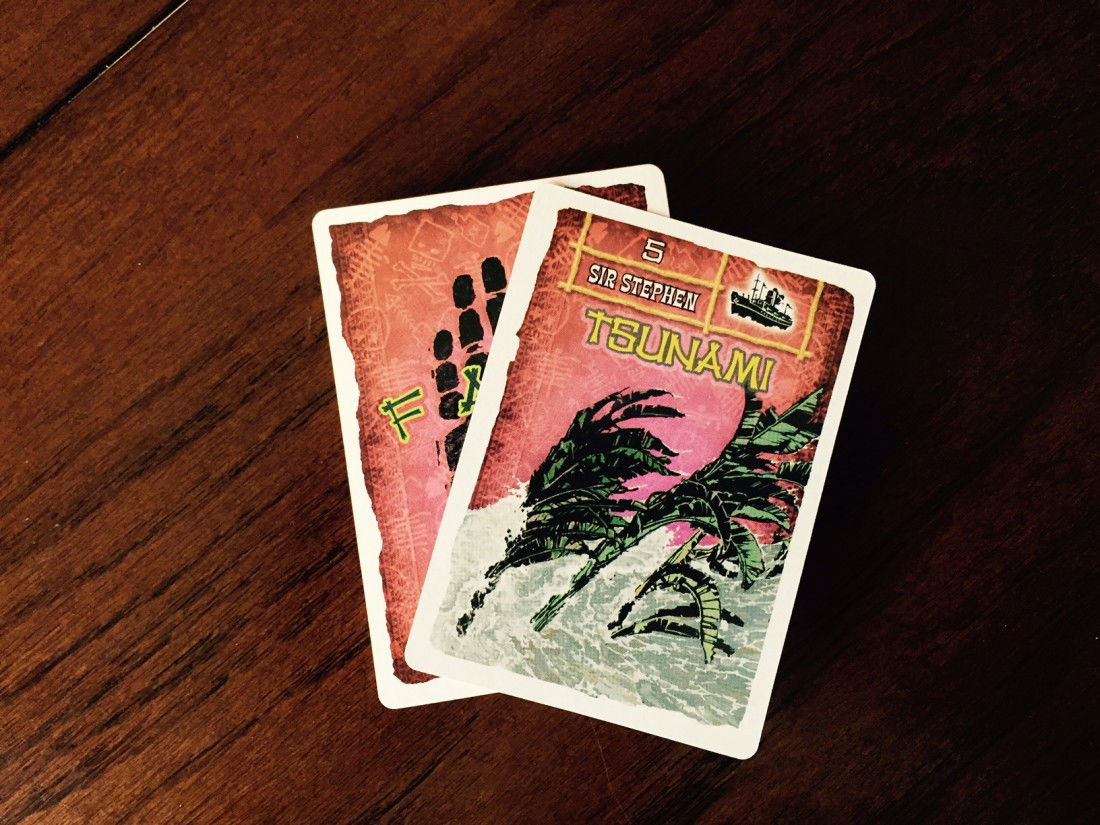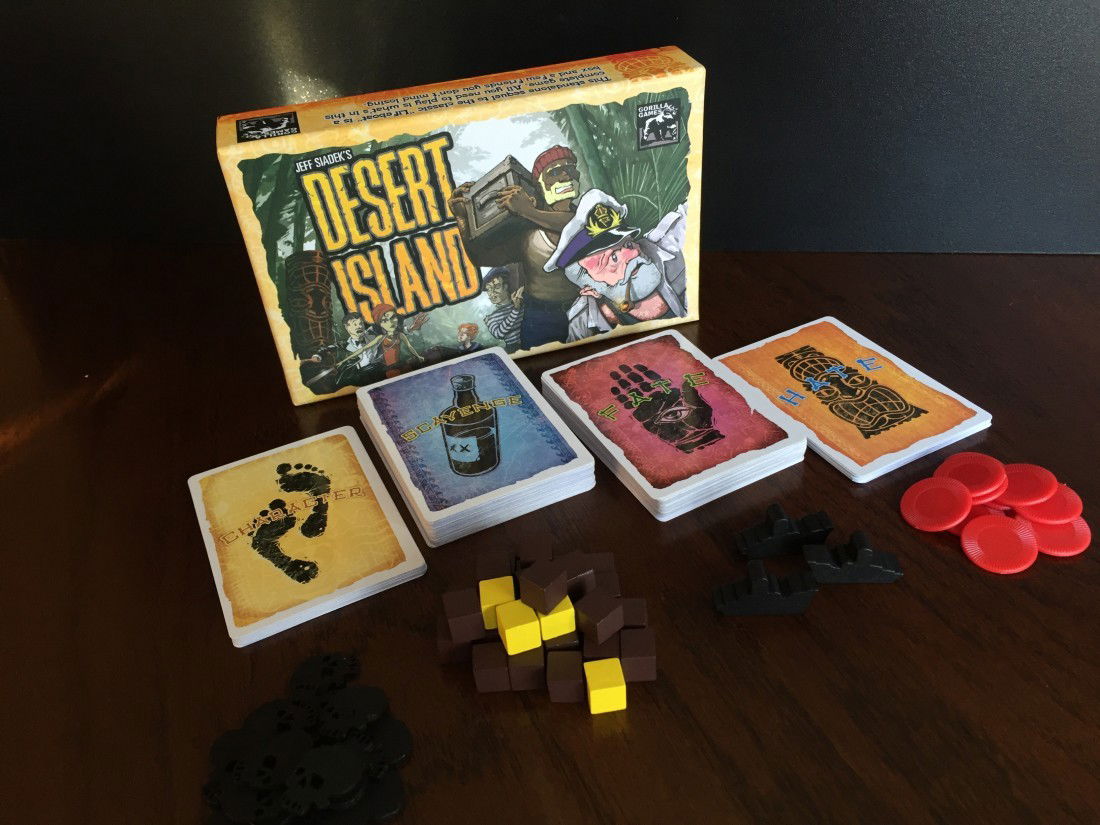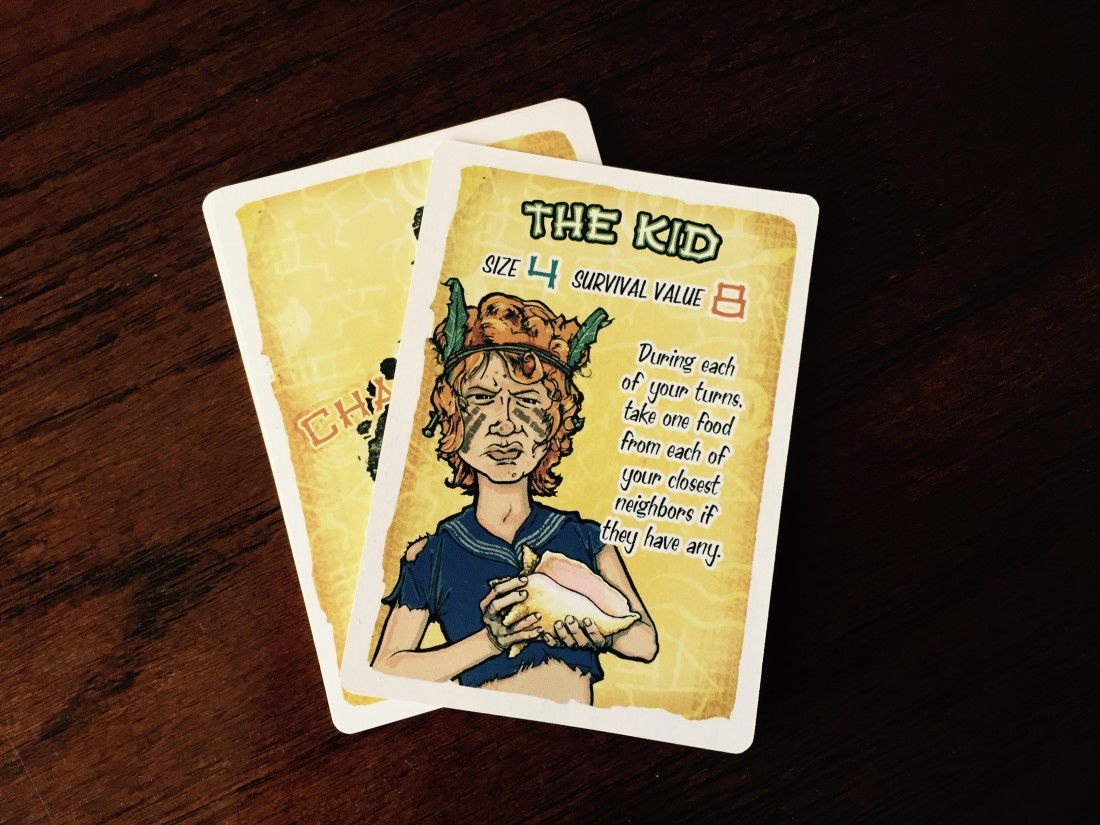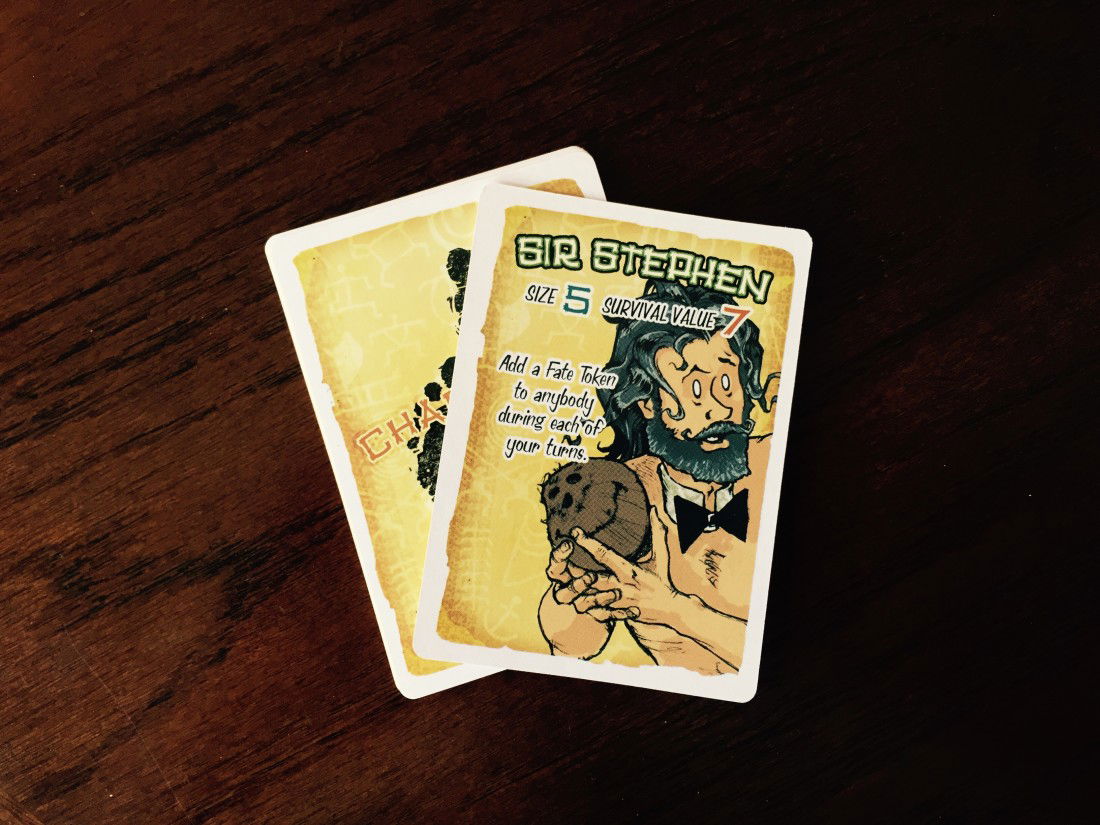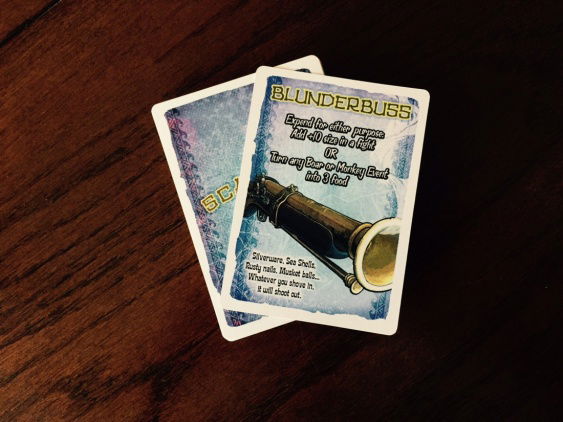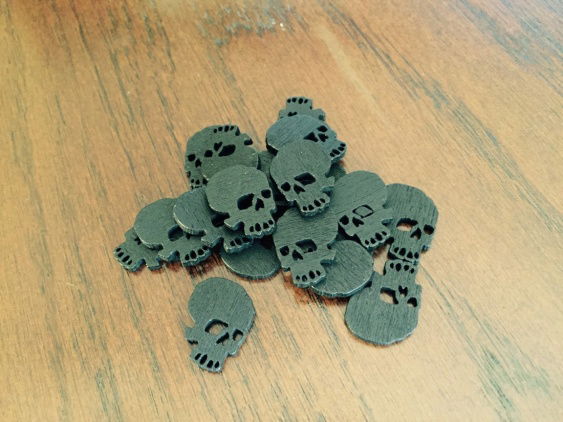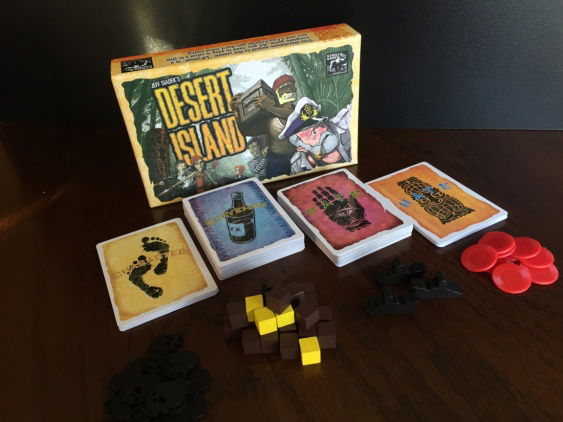You’re stranded on a desert island. You’ve got to eat, deal with the other survivors, and get rescued. Do you want to beat up The Kid and steal his food, but collect bad karma? Do you want to steal someones position in The Spring so you can forage for more food? These are the goals and trials in a typical game of Desert Island by Gorilla Games. There is a lot of backstabbing and secret keeping, but you’ll also have to work together if you want to survive.
Title: Desert Island
Type: Tabletop Game
Designer: Jeff Siadek
Publisher: Gorilla Games
Players: 4-6
Price: $29.95
How Does It Play?
Basically, Desert Island (which is a standalone expansion to Lifeboat) is a game where players take the role of 1 of 6 castaways, all stranded on a desert island and trying to survive/escape. Players will take turns foraging for food (or fighting over it!), utilizing scavenged items, and attempting to light signal fires to eventually be rescued. However, at the end of each turn, Fate will be dealt to one (and sometimes all) of the players, causing them to be hurt, lose their food, or even die.
Because each character has specific perks, strengths, and weaknesses, the players are dealt a character card randomly. You might end up being The Kid, who is small and weak, but can steal food freely from his closest neighbors. Or, you may end up with The First Mate, who gains extra food when foraging, but is very big and needs to eat a lot. Either way, you’re stuck with who you get.
Along with being dealt a random character, players are also dealt two more cards—one “Hate” card and one “Love” card. These cards tell you who you secretly hate and love on the island, and you keep these face down, hidden from the other players. The whole point of this mechanic is, if you secretly love The Kid and he survives at the end, you’ll get points. Alternately, if you secretly hate The Captain and he dies, you also get points. So, it helps you to aid the one you love and hurt the one you hate, but you do need to be careful to not let the others know your secret, because they can use it to their advantage.
One more part of the setup is the location cards, of which there are also 6 to go along with each character. Each character is randomly assigned to a location on the island, because like the character cards themselves, each location has a perk or weakness. For instance, the Spring allows players to gather more food per turn, and the Swamp makes a piece of food rot every turn. The Spring has its obvious perk, but you’re more in danger of someone fighting you for it, so if you don’t need to much food per turn (your required food intake is based off of your size) it might be beneficial to stay put in the Swamp.
This is the initial setup and only takes a couple of minutes. Afterwards, the turns start and whoever is on The Beach goes first. At the beginning of each turn, everyone gets a Scavenge card, which can be first aid, extra food, or even weapons. This is where being on the Beach comes in handy – whatever character is on the beach gets to look at all of the Scavenge cards and deal them to the other players however they see fit. You can cheat the player you hate, support the player you love, and ultimately help yourself any way you can.
Pro tip for players on the Beach: Give yourself Victory Point cards. You see, the game ends when the players finally light enough signal fires to be rescued, or when every player dies, whichever comes first. Afterwards, all Victory Points are counted to see who won. A player gets so many VP for surviving, additional VP if the character you loved survived and the player you hated died, and then if any Scavenge cards give VP, you add those, too.
This is why you want to stick around even if your character dies. Sure, you can’t take any more turns, because you’re dead, but you may still win in the end by having gained the most VP. I played a round of Desert Island with some random people at a convention, and when a certain player died, he was going to get up and leave before the guy running the game advised him that he may still win if he has time to stick around. Sadly, he didn’t win, I did, but he could have. He could have.
Presentation
Inside the box, owners get a bunch of cards—character cards, fate cards, scavenge cards, and location cards—and also get some tokens to represent fate, wounds, food, signal fires and ships.
The cards are pretty straightforward, and the art is pretty decent. They aren’t as beautiful as looking at MTG cards, or even Boss Monster’s wonderfully pixelated art, but they get the job done. What I’m saying is that they’re nothing special, but they aren’t terrible either.
The tokens, on the other hand, are somewhat uninspired. The only cool tokens are the fate tokens, which are little black skulls placed on characters as they accrue fate each turn. The other pieces are very basic—the signal fire and wound tokens are just generic red chips, the food tokens are literally tiny wooden cubes, and the ship tokens are, well, ships.
I don’t think that tokens make the game, and you can certainly have fun with what you get in Desert Island, but I think one cool part of a new game is interesting design and cool pieces to use. Desert Island is lacking those cool pieces in an obvious effort to save a buck during production. Like I said, the skulls are cool and the ships don’t really need to be much more than ships, but the other pieces look like placeholders during the testing phase of the game that somehow made it into the final product.
Fun
Despite the lack of flair in pieces, you will still have fun with Desert Island. Seriously, it’s a lot of fun with the right people and after just a couple turns, everyone will be on the same page and ready to backstab/support each other to victory.
I really like the Love/Hate mechanic in the game, because it adds just enough to keep every round interesting. It’s funny how just keeping one secret in a game adds so much for players. Honestly, the game would work just the same without loving or hating someone, or equally as well if everyone knew who those people were, but being required to keep a secret is always fun. What’s great is you don’t necessarily have to keep that secret, but can show anyone you like and use it to your advantage.
The game can last a while, depending. This can be good, because I don’t really like short games, but one game I played lasted about 3 hours, and by the end, we were all ready for it. What can drag the games on is lighting signal fires and escaping. You need to light four fires, and you need to do that three times. Since you can only perform one action during your turn, and will typically spend this action foraging for food, signal fires are rarely lit. So really, even though it’s a game about protecting yourself and stealing from others, there is an element of cooperation if you’re ever going to get off the island (and end the game).
That aside, though, Desert Island is a really fun game. If you feel the need to shorten it, you can always come up with some “house rules” for a quicker end. If you like to drink a few beers while you play, this is definitely the game for that. Turns don’t last too long, there’s a lot of social interaction to be had, and it can get quite boisterous throughout.
*Copy of Desert Island was provided for review by Gorilla Games
Summary
Desert Island is a worthy addition to your collection of tabletop games. Even though the max is six players, and the more the better, the game plays just fine with 4. It’s fun to play in a quiet setting, but can get boisterous enough to fit a party. If you’ve got 1-3 hours to spare and don’t mind turning your friends into enemies, you could fill your time with worse games.
Pros:
Cons:
-
Witty sentence here and the score. remember to use the star system!


